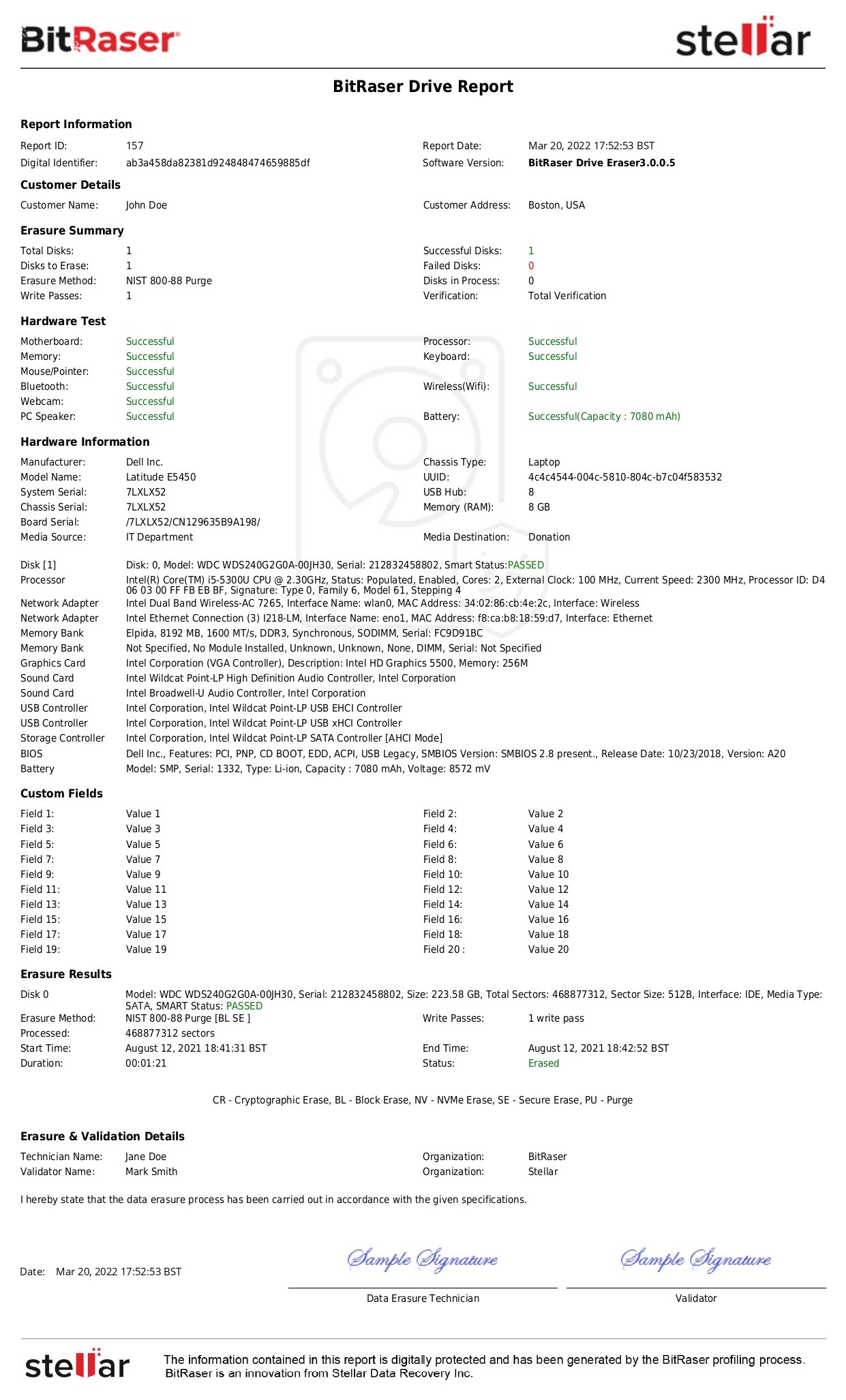The FACTA Disposal Rule & Its Importance for Businesses:
As a business owner, you handle a lot of sensitive information daily. We have previously discussed in our blog about consequences and risks of data breaches and lawsuits upon improper disposal of sensitive data.
That's where the FACTA disposal rule comes in to protect businesses from potential legal and financial repercussions. Established in 2003, this rule is an amendment of FACTA, or the Fair and Accurate Credit Transactions Act, a federal law that requires businesses to properly dispose of sensitive consumer information in consumer reports and records. The rule defines 'What is proper disposal' and cites ways of disposing of information through various methods including data wiping/erasing, shredding, burning, or pulverizing media containing sensitive information. The objective is to follow a secure data destruction method of removing unwanted information from electronic devices or destroying other physical media such as CDs and DVDs. Businesses can breathe a sigh of relief about maintaining their reputation and safeguarding clients' trust by complying with the law.
The FACTA Disposal Rule is applicable to individuals, small and large organizations, including but not limited to consumer reporting companies, lenders, insurers, employers, landlords, government agencies, mortgage brokers, car dealers, attorneys, private investigators, debt collectors, entities that maintain information in consumer reports, and individuals who obtain consumer reports for prospective home employees like nannies or contractors. Additionally, entities that provide services to other organizations covered by the Rule are also subject to it.
According to FACTA, the below information constitutes 'Personal Information' that needs to be protected:
- Social Security numbers
- Credit card numbers
- Bank account numbers
- Driver's license numbers
- Medical information
- Employment information
- Personal identification numbers (PINs)
- Passwords
- Addresses and phone numbers
Consequences of Non-Compliance with the FACTA Disposal Rule:
Non-compliance with the FTC disposal rule can result in severe penalties, both in terms of financial costs and reputational damage.
- Hefty Penalties: Under FACTA, businesses that fail to properly dispose of consumer information can face Federal fines of up to $3,500 per violation. There are separate US state enforcements and civil liabilities up to $1000 each per violation. These fines can quickly add up, especially for businesses that handle large volumes of consumer information.
- Reputation at Stake: Compliance failure damages a business's reputation, leading to lost customers and decreased trust. In today's world, where data breaches and identity theft are becoming more prevalent, secure and permanent data erasure is non-negotiable. Any business that fails to diligently address this concern can end up in the middle of data breach incidents like Morgan Stanley and face public outrage.
- Costly Lawsuits: In addition to the financial and reputational penalties, non-compliance can also lead to legal action. Businesses that fail to dispose of consumer information securely under FACTA face costly and time-consuming lawsuits from consumers whose information is compromised.
How to Comply with FACTA Disposal Rule?
Data disposal is a crux element of the data privacy laws enacted by different states in the U.S. With more and more stringent laws, businesses are proactively rushing to implement data retention and disposal policies to remain compliant with the data privacy laws like the FACTA disposal rule. We have listed some of the best practices businesses can implement to ensure compliance:
- Develop and implement a written data disposal policy: A written policy should outline the procedures for disposing of sensitive consumer information in a secure and compliant manner. The policy should be accessible to all employees who handle sensitive information.
- Train employees: All employees who handle sensitive information should be trained at regular intervals on the proper disposal procedures outlined in the written policy.
- Use secure data destruction methods: Use secure disposal methods such as shredding, burning, or pulverizing documents containing sensitive information. Securely delete digital files from devices and drives using certified data erasure solutions like BitRaser, designed for this purpose.
- Use a reputable electronic media destruction vendor: If you use a disposal vendor, ensure that the vendor is reputable and has a secure disposal process in place. As per FTC, 'Your contracts must spell out your security expectations, build in ways to monitor your service provider's work, and provide for periodic reassessments of their suitability for the job'. The vendor must possess certifications like R2, e-stewards, NAID AAA, and the like.
- Monitor and audit disposal procedures: Periodically monitor and audit disposal procedures to ensure that they are being followed correctly.
- Maintain data destruction records: Maintain records of disposal in the form of data destruction certificates that records media type, erasure date, the method used for wiping, and other important information. Use these records to demonstrate compliance with the rule in the event of an audit or investigation.
Benefits of Complying with the FACTA Disposal Rule:
Compliance with the FACTA disposal rule brings several benefits to businesses, such as:
- Avoiding Penalties: In 2020, the Federal Trade Commission (FTC) penalized a mortgage broker company $120,000 for improperly disclosing the personal information of customers to third parties and failing to dispose of customer information securely. Compliance with FACTA disposal rules can help businesses avoid such penalties.
- Protecting Customer Information: If customer information falls into the wrong hands, there is a high risk of identity theft. Proper disposal of customer information helps protect customers' personal and sensitive information and positively impacts customers' trust and business reputation.
- Strengthening Brand Image: Customers are more likely to do business with companies that prioritize their data privacy and security. Thus, compliance with the rule can help businesses enhance their brand image and build trust with customers.
- Enhancing Operational Efficiency: Proper disposal of customer information can help businesses streamline their operations and reduce the risk of data breaches. This can save time and money associated with handling data breaches and data security incidents.
- Environmental Responsibility: Proper disposal of sensitive information not only protects against identity theft and legal issues but it also ensures that sensitive information does not end up in landfills and electronic devices are recycled or destroyed in an environmentally responsible manner. Businesses today need to follow their corporate social responsibility.
Conclusion:
Every business has a strong emphasis on minimizing the risk of identity theft and protecting itself from legal and financial repercussions. With the help of the FACTA Disposal Rule, they can comply and protect sensitive consumer information. The necessary actions they have to take involve documenting a plan, using secure disposal methods, and prioritizing employee training and awareness. For securely disposing of information from the electronic device and staying compliant, you may use BitRaser data erasure solution for enterprises and government.
Don't take chances with your customers' personal information - ensure your business complies with FACTA disposal rules today.










